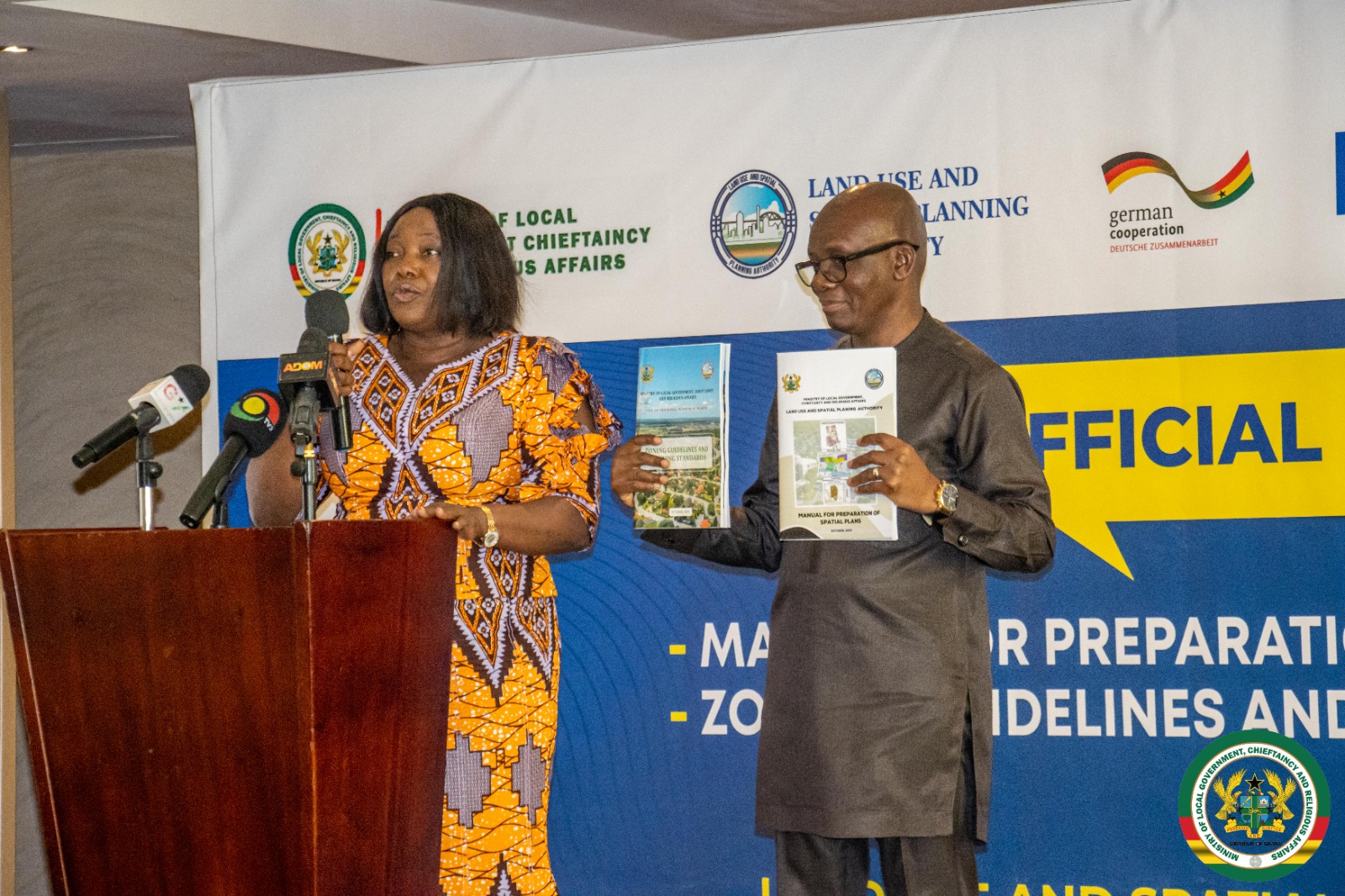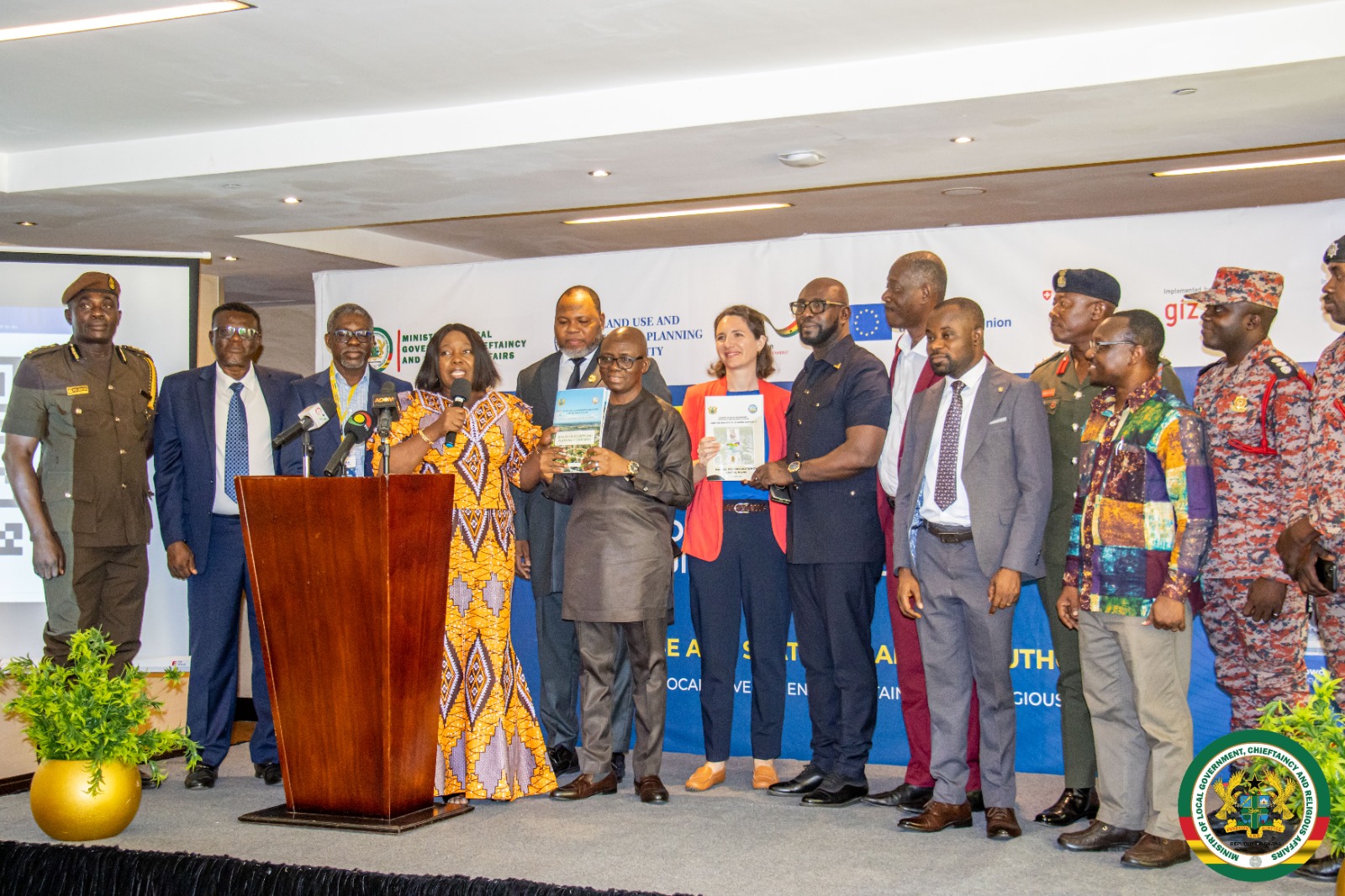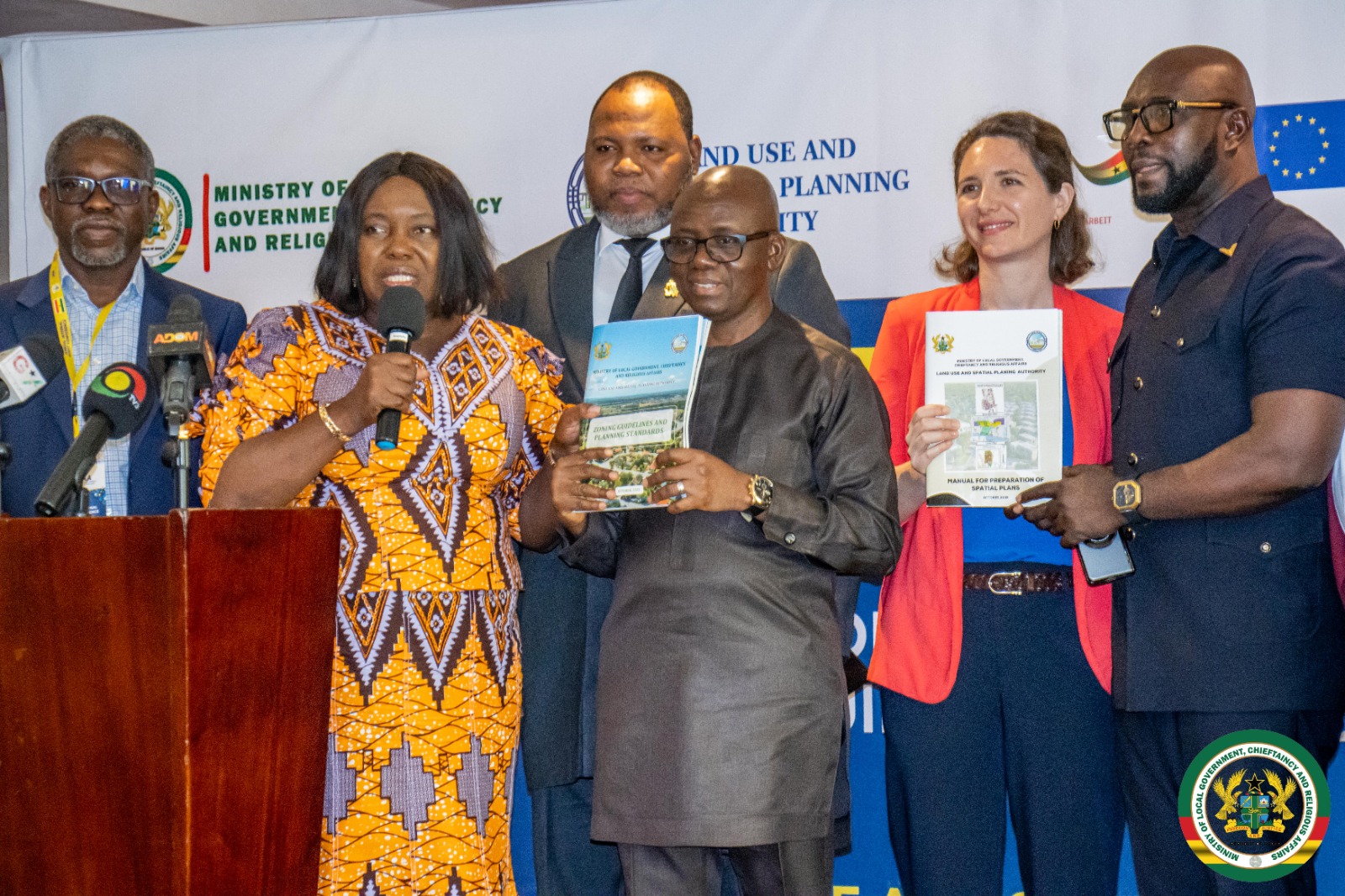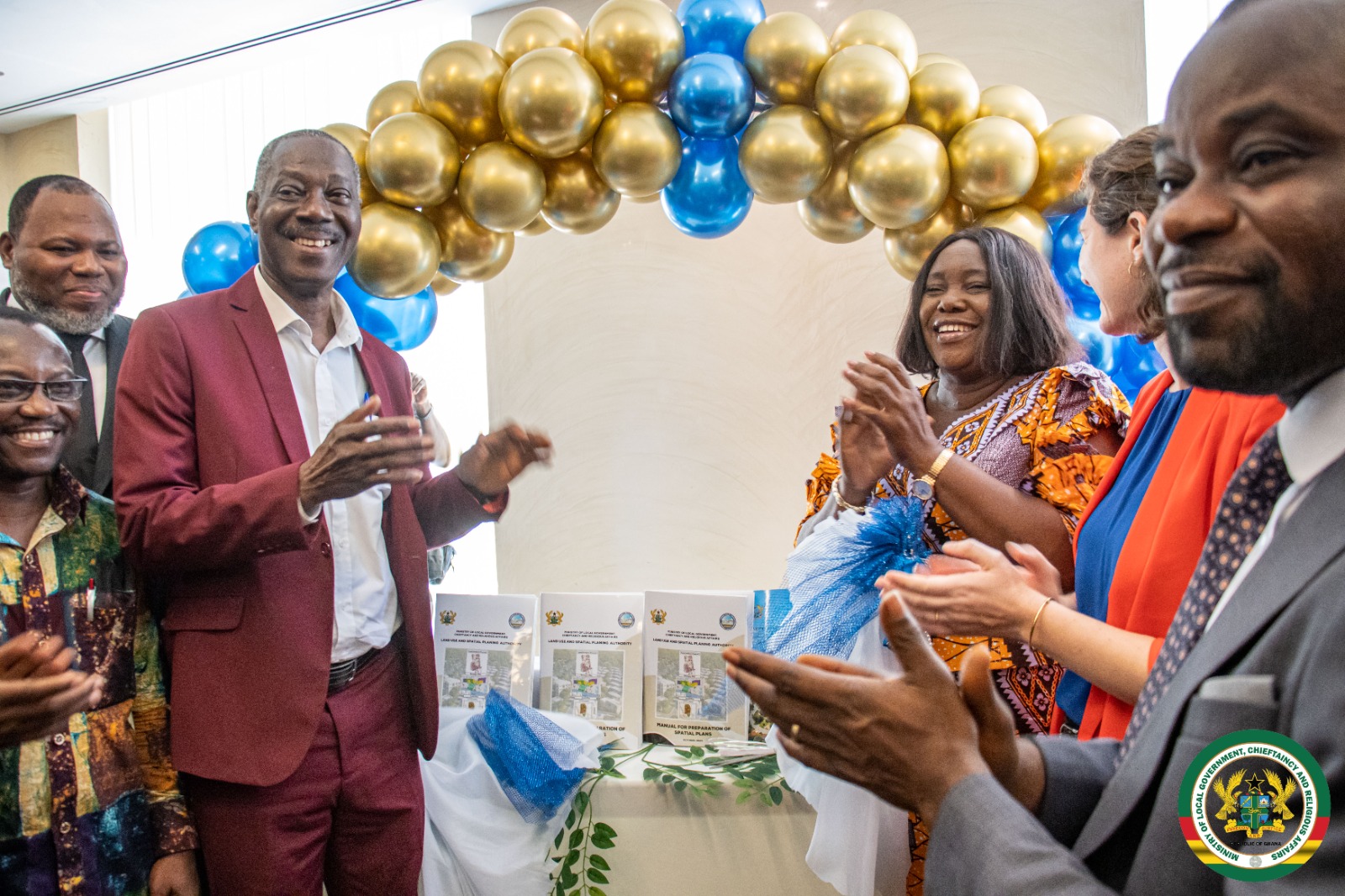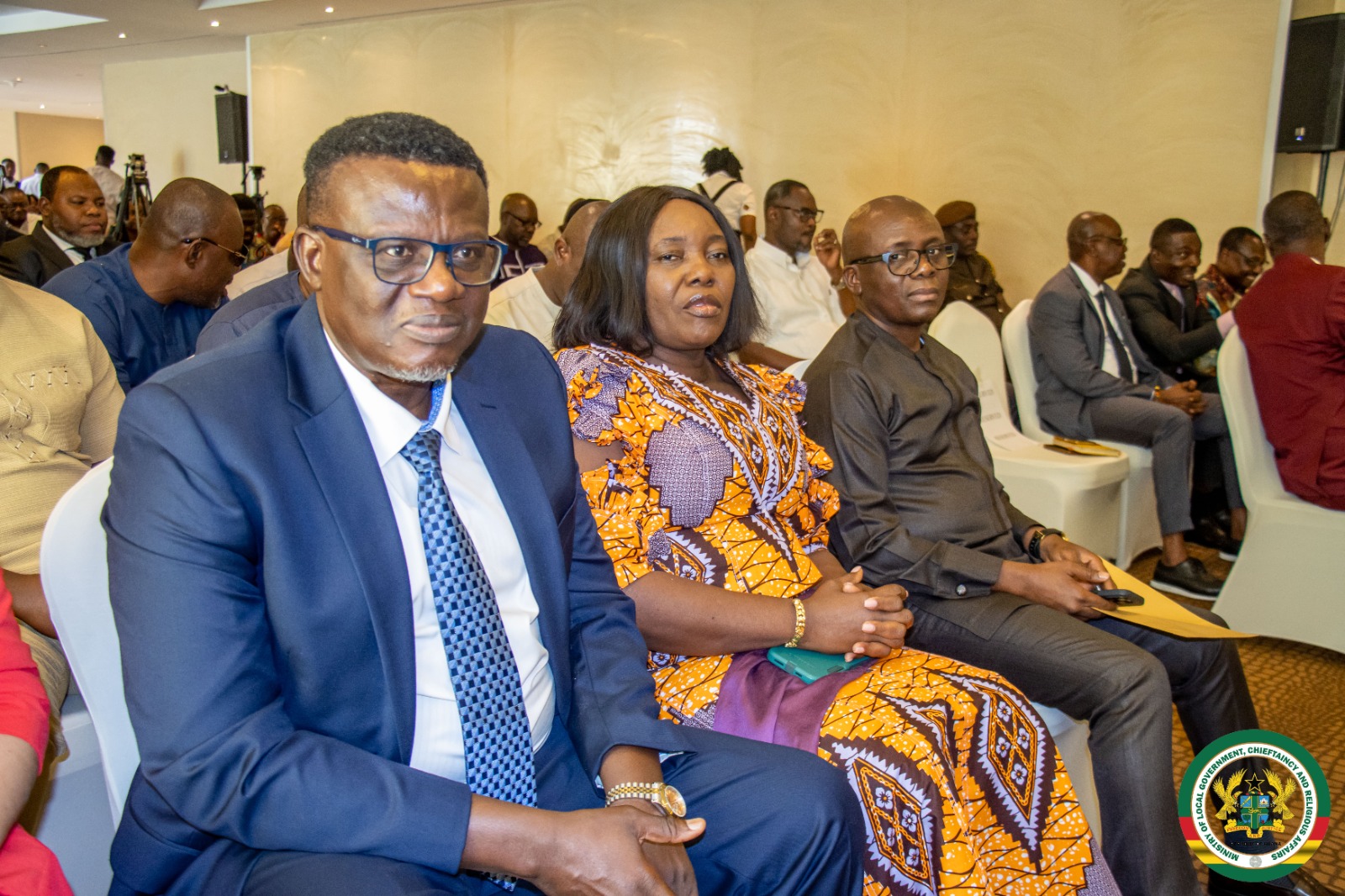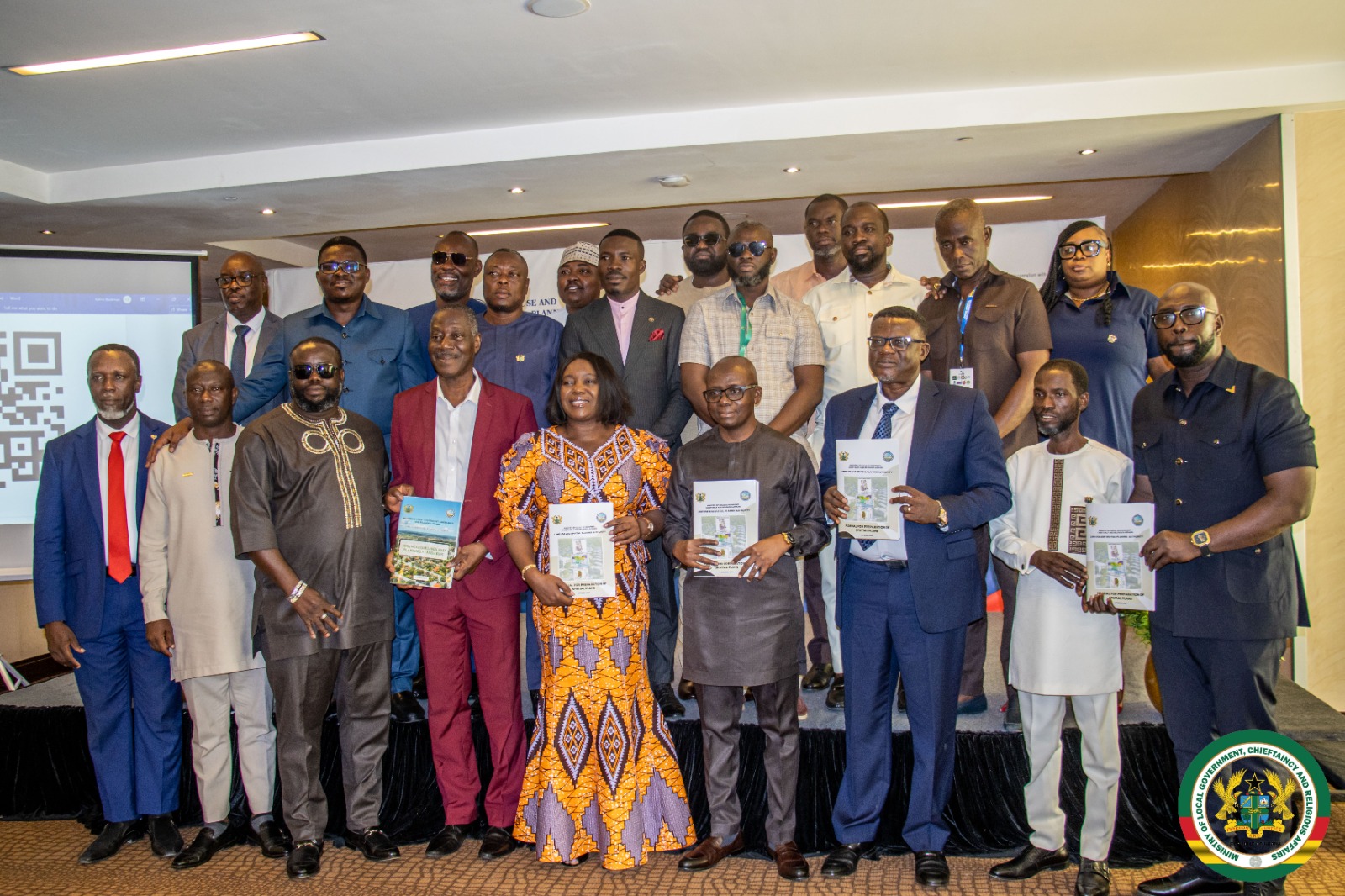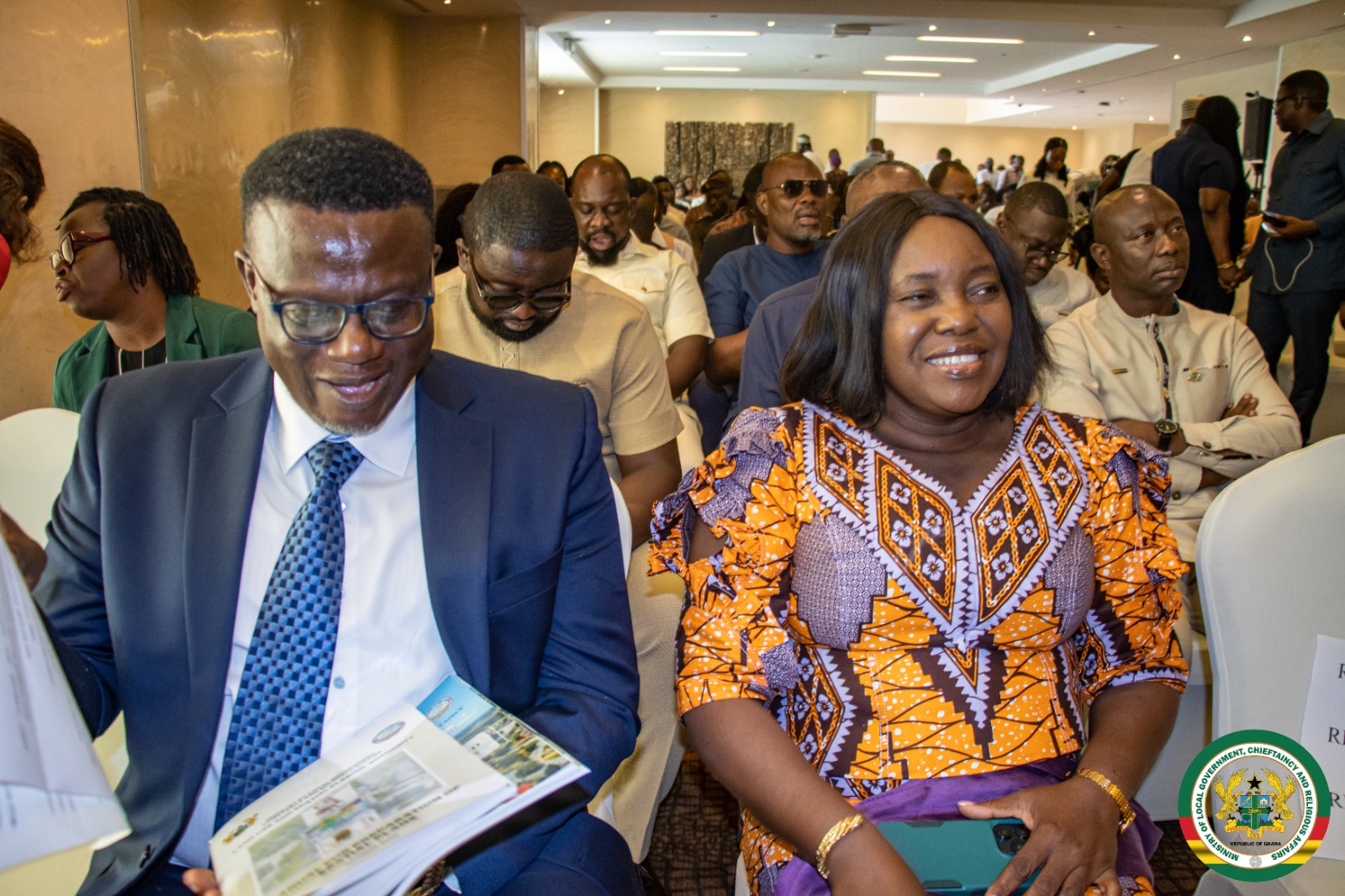The Ministry of Local Government, Chieftaincy and Religious Affairs (MLGCRA) has launched the revised Manual for the Preparation of Spatial Plans, and Zoning Guidelines and Planning Standards, reaffirming government’s commitment to promoting orderly, inclusive, and sustainable spatial development across the country.
In a keynote address by the Deputy Minister for Local Government, Chieftaincy and Religious Affairs, Hon. Rita Naa Odoley Sowah (MP), at the launch in Accra on Monday, 3rd November 2025, she indicated that the revised documents are a practical tool for empowerment aimed at equipping the assemblies with the guidance needed for smarter and more coordinated spatial planning.
She was of the view that an effective spatial planning is fundamental to Ghana’s sustainable development agenda and the advancement of government’s flagship programmes such as the Big Push Initiative, the Ghana Infrastructure Plan, and the 24-Hour Economy Programme.
Hon. Sowah underscored that the launch of the revised documents comes at a crucial time when Ghana is deepening decentralization and enhancing the capacity of Regional Coordinating Councils (RCCs) and Metropolitan, Municipal and District Assemblies (MMDAs) to deliver on their mandates. She added that as urbanization accelerates, it is imperative to guide the growth and redevelopment of settlements through evidence-based and harmonized spatial planning standards.
Reflecting on the evolution of Ghana’s spatial planning framework, the Deputy Minister noted that the original manuals were developed in 2011 under the then Town and Country Planning Department. However, the passage of the Land Use and Spatial Planning Act, 2016 (Act 925), with the subsidiary Legislative Instrument 2384, and the Local Governance Act, 2016 (Act 936) has necessitated the comprehensive review and alignment of the documents with the current legal, policy, and development context.
Hon. Sowah commended the Land Use and Spatial Planning Authority (LUSPA) for its visionary leadership and coordination throughout the revision process, while expressing appreciation to all collaborating institutions including the RCCs, MMDAs, Civil Society Organisation, traditional authorities, and development partners for their invaluable contributions as well as the German Corporation (GIZ) for its technical support in the review and update of the manuals.
The revised manuals provide a consistent and collaborative framework to guide land use, manage human settlements and promote safe, inclusive and resilient communities.
She urged the Metropolitan, Municipal and District Chief Executives present at the launch to commit to implementing these guidelines with diligence and innovation, stressing that their collective efforts will ensure Ghana’s human settlements are not only well-planned and functional, but just, equitable, and sustainable.
Source: Chantal Aidoo
Public Relations Unit, MLGCRA
